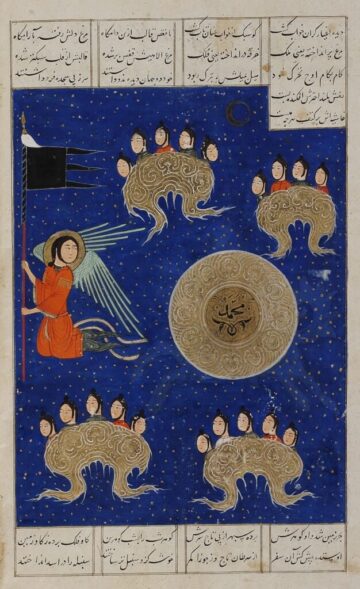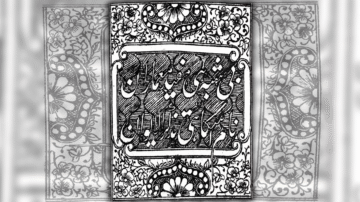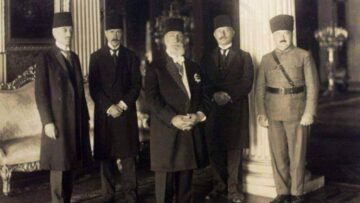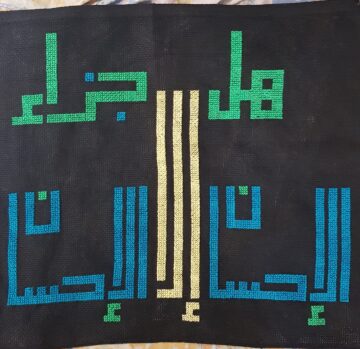- IHTLS
- Lecture series
The Exoteric Tradition of the Fatimids: Sources, Reception, and Interpretation

-
Status
Ended -
Date
29 Sep 2022 -
Location
Online
Part of the Islamic History and Thought Lecture Series
The Fatimid period (297–567/909–1171) is duly characterised as the golden age of Ismaili thought and literature. A new genre of Shiʿi literature emerged soon after the Faṭimids established their hegemony over North Africa. Al-Qadi al-Nuʿman (d. 363/974), the most prolific Faṭimid jurist, who is responsible for orchestrating its almost entire textual tradition, was tasked with the responsibility of compiling literature that would serve as an authoritative point of reference for jurists, judges and bureaucrats in the burgeoning Ismaili state.
It is evident that he had to have recourse to earlier hadith collections (the main point of focus in this lecture) that he cites consistently in his writings and incorporates into his works. These early Medinese and Kufan hadith collections, most of which no longer exist, are believed to have equipped al-Nuʿman with the raw material from which he formulated and systematised various aspects of Ismaili belief and practice. How can the historicity of these sources be determined? How did this early Shiʿi material end up in North Africa? Which factors dictated the selection, interpretation and appropriation of the material available in these sources for Ismaili law and belief systems? This talk will focus mainly on addressing these and similar questions.
Image: View of Mahdia, Tunis. (c) Russell Harris.
Date: 29 September 2022
Time: 2.00 pm – 4.00 pm GMT
Location: Online (Zoom)
Q&A: At any time during the lecture, attendees can submit questions to the speaker through the Q&A option at the bottom of the control panel. As time allows, the speaker will address as many questions as they can during the Q&A session at the end of the presentation.
Recording: Please note that the session will be recorded and published on the IIS website, and on the IIS YouTube channel.
Discussants: Dr Fârès Gillon (The Institute of Ismaili Studies); Dr Hasan Al-Khoee (The Institute of Ismaili Studies)
Dr Kumail Rajani
Postdoctoral Research Fellow in Islamic Studies, University of Exeter
Dr Kumail Rajani is a Postdoctoral Research Fellow in Islamic Studies at the Institute of Arab and Islamic Studies, University of Exeter. He works on the Law, Authority and Learning in Shiite Islam project, an advanced award funded by the European Research Council. Though primarily focused on the origins and development of hadith corpora, his research includes Islamic law, legal theory, and Shiʿi studies more broadly. He recently published an article entitled “Between QumA historic city in Iran to the south of Tehran. It is considered by many Shi‘i Muslims as Iran’s second holiest city after Mashhad. Qum is a leading centre of… and Qayrawān: Unearthing early Shii ḥadīthLit. ‘report’ or ‘narrative,’ used for the traditions of the Prophet Muhammad and in Shi‘i Islam also for those of the Imams. sources” (BSOAS 84/3, 2021). He also edited The Sound Traditions: Studies in Ismaili Texts and Thought (Brill, 2021) and co-edited Shiʿite Legal Theory: Sources and Commentaries (forthcoming, 2022). He is currently working on converting his PhD (Making Sense of Ismaili Traditions: The Modes and Meanings of the Transmission of Ḥadīth in the Works of al-Qāḍī al-Nuʿmān (d. 363/974), Exeter) into a monograph, among other pursuits. Dr Rajani spent a number of years in Shiʿite seminary (Ḥawza) of Qum studying and teaching classical Islamic texts of ḥadith, fiqhThe science of Islamic jurisprudence. and Islamic legal theory.






